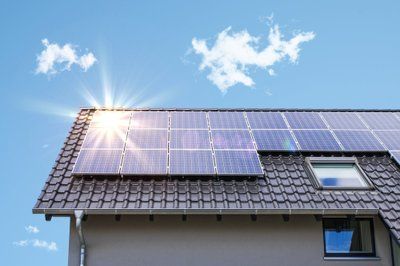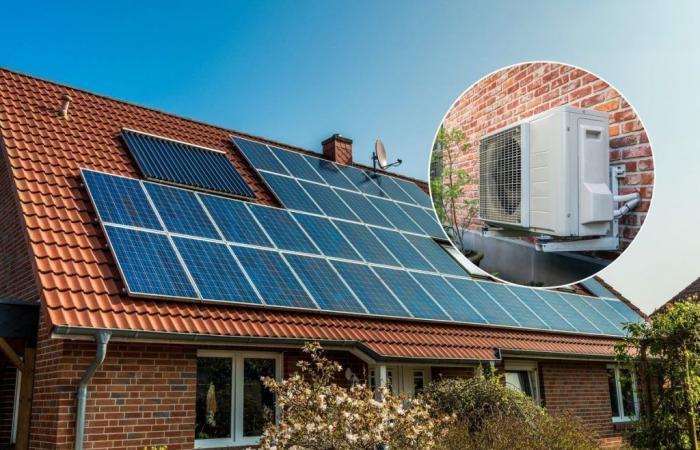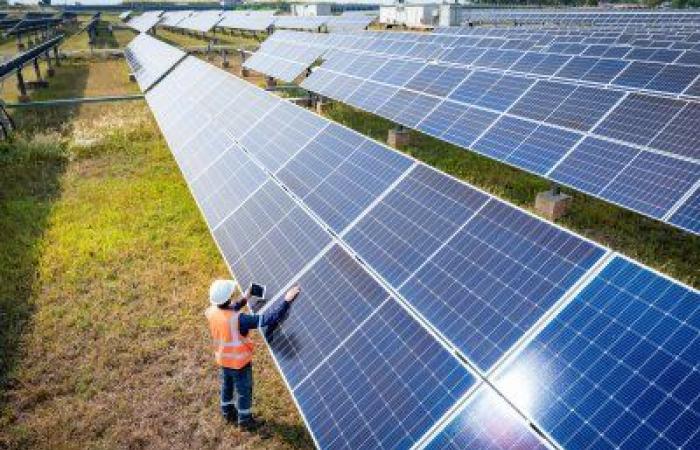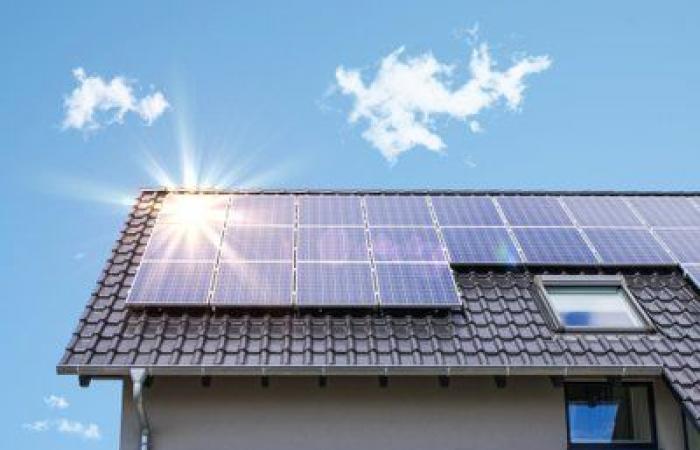There would be no power plant and no heat pump
Darius from Kaunas installed the solar power plant in his yard two years ago. As the interviewer recalls, the beginning of this process was timid – first, the family of the Kaunas resident planned to install only a 5 kW power plant, so that it would cover all current electricity costs. However, the interviewer says, when the first modules were installed, the family wanted to double the solar power plant – up to 10 kW.
Darius says that two years ago he managed to install only a 5 kW solar power plant, because applications for support to APVA were submitted specifically for such a power plant, but already the next year the man from Kaunas implemented his new plan.
When asked if there were any doubts before the installation of the solar power plant, the interviewer assures us – absolutely not. The decision to choose a solar power plant was motivated by the skyrocketing electricity prices two years ago, and the solar power plant appeared to Darius as the best way to pay less for electricity.
Kaunietis estimates that the solar power plant modules and their installation work cost about eight thousand. EUR, but APVA support covered a third of the price.
True, the solar power plant installed on the roof of his own house gave the interviewee the opportunity not only to pay less for the consumed electricity, but also to improve his household.
“First we installed a 5 kW power plant and it would have been enough, but we thought of purchasing a heat pump as well. Now we have a power plant with a capacity of 10 kW and we use all the electricity produced”, the man from Kaunas is happy with the new purchase and says that if the solar power plant had not been installed, his family would not have purchased the heat pump.
When asked if he plans to expand the existing solar power plant, the man from Kaunas assured that until there are plans to purchase an electric car, he does not plan to expand the power plant.
Interest is still growing
Last year, the Ministry of Energy announced that the number of residents who wanted to install solar power plants increased massively. In 2022 alone, the number of producing users doubled. And although it would seem that the peak of the installation of solar power plants has already been reached, both residents and businesses are still actively installing solar power plants.
According to the representatives of the company “Saulės brūja”, the population’s interest in solar power plants, and more precisely in energy independence, is still growing. It is true that the interlocutors note that the support provided by the state also motivates the residents to install solar power plants – because the allocated financing accelerates the payback period of the solar power plant.
The experts of the company “Saulės brųa” calculate that with state support, the solar power plant pays for itself in 2-3 years, without it – in 3-4.
When asked which power plant – remote or on the roof of the house – residents tend to choose, specialists assure that each situation is very individual. The representatives of the company “Saulės brųa” add that if residents are not sure which power plant to choose, specialists can advise after assessing the situation.
“Let’s say a customer has a south-facing pitched roof. After finding out his electricity consumption needs, we can see that according to the available roof area, a power plant of the required power could be installed. In this case, we encourage you to take advantage of the excellent conditions available. If the available roof area is not enough for the power plant or there are many trees growing nearby that cast a shadow, we recommend purchasing a part from the park”, the interviewees comment.
They add that a remote power plant is a good solution for apartment dwellers as well, when the installation of a physical power plant is possible only in very difficult conditions.
Residents are in the dark
At the beginning of this year, the Ministry of Energy announced that Lithuania has its own solar power plants, including remote ones, about 40 thousand. of the country’s population. According to the representatives of the ministry, solar power plants not only directly reduce the electricity bills of the residents, but also increase the energy independence of the country.

For this reason, representatives of the ministry assured, support for the installation of solar power plants will be provided this year as well. However, said support also causes inconveniences.
Both Darius from Kaunas, who was interviewed before, and the specialists of the company “Saulės brųa” assure that one of the most motivating reasons for installing a solar power plant is the support provided by the state. However, it often becomes a source of hesitation. In January and February of this year, support was reserved in just a few hours, there is a lot of interest, but residents lack clarity.
“The Ministry of Energy on March 18 announced that another one, 40 million, is planned for the second quarter of the year. EUR worth of support. The second quarter is now underway, but it is not known when the support will be provided. Clients are afraid that they may not be able to complete the application for compensation, because the amount allocated for financing will be absorbed very quickly”, the interviewees comment.
Delphi reminds that every resident who meets the criteria and applies for support is given support of 255 euros per 1 kW. When expanding an existing solar power plant, support of 192 euros per 1 kW is allocated.








